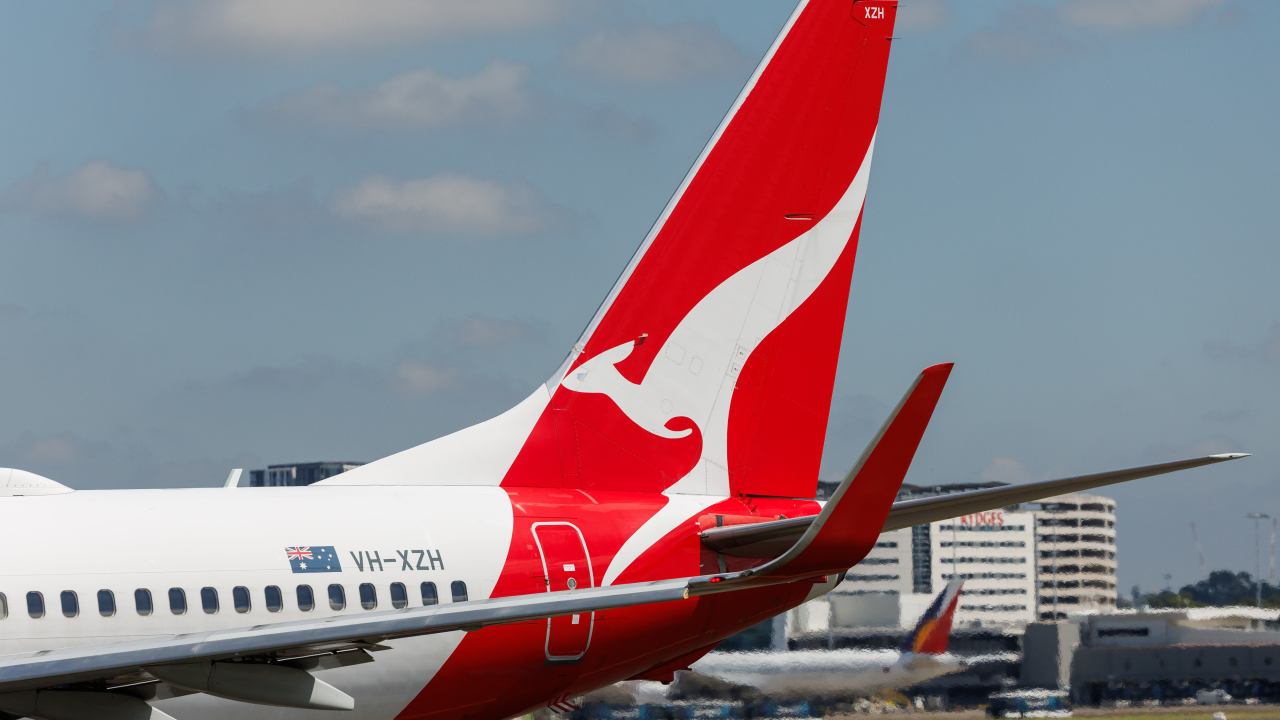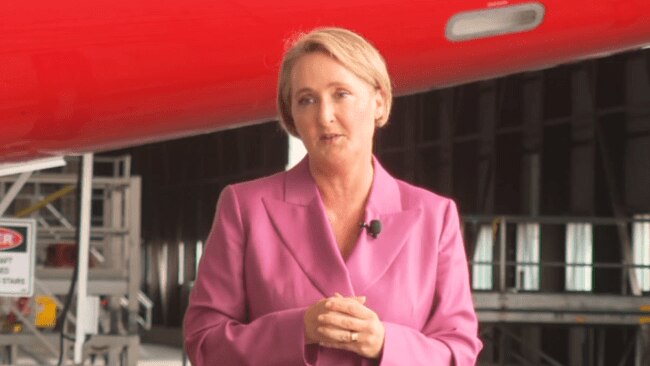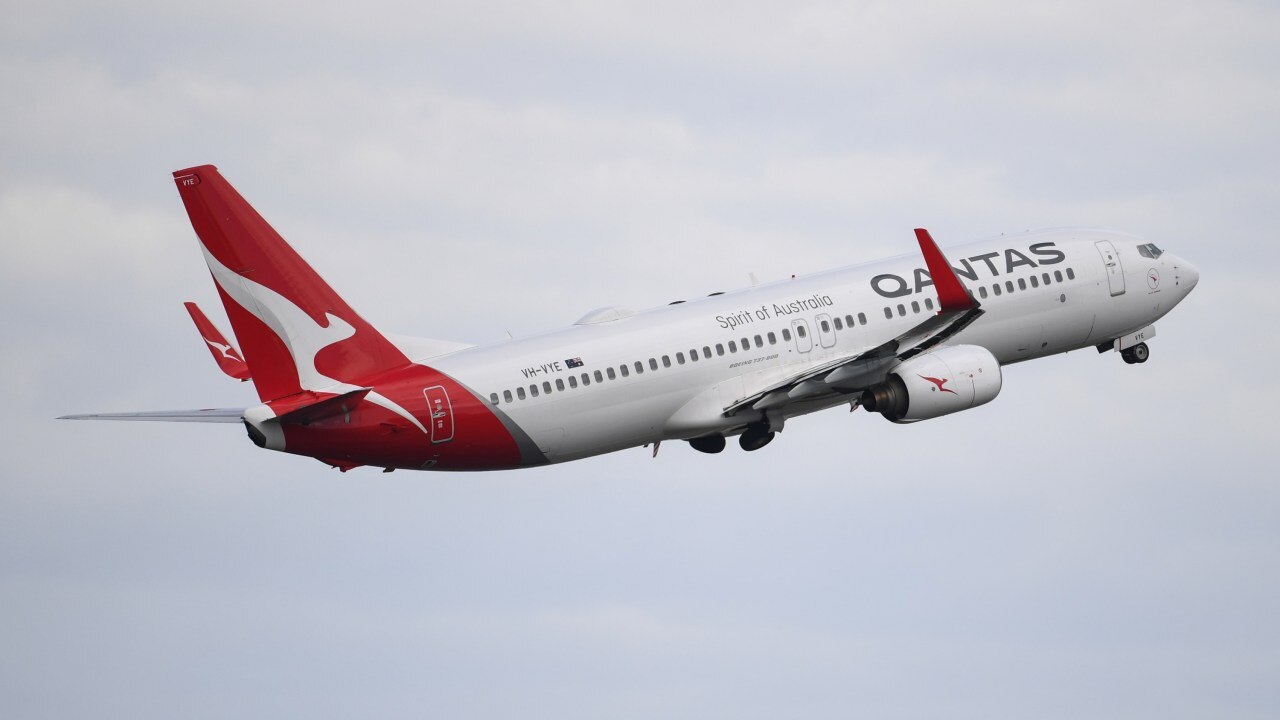Qantas reveals major aircraft upgrades as it delivers first dividend since pandemic
Qantas Group has posted a $923m profit for the first half of the 2025 financial year as it looks to revitalise its aircraft and pay shareholders a dividend for the first time since the pandemic amid soaring travel demand.
The company, which includes its budget subsidiary Jetstar, said its strong performance was driven by its “dual brand strategy” as premium and corporate travellers flocked to Qantas and many everyday travellers opted for the low cost alternative.
Qantas Group said it will pay a fully franked dividend of 26.4 cents per share, with chief executive Vanessa Hudson telling shareholders the company’s stellar performance facilitated this.
“Our financial strength means we are now in a position to pay our shareholders dividends for the first time in almost six years,” Ms Hudson said.

The company's board said it has approved a $250m base dividend (16.5 cents per share) and a $150m special dividend (9.9 cents per share) to be paid April 16.
Alongside the dividend, the airline said it had paid 27,000 non-executive employees $1000 each as a "thank you payment" in December.
Qantas also noted a drop with international airfares of about 6.6 per cent, while domestic flights increased 0.8 per cent.
Jetstar’s low fares were a point of pride for the company as about one third of tickets below $100 for the six-month period.
“Qantas and Jetstar made travel possible for more Australians, carrying 28 million customers, with around one third of Jetstar customers travelling for under $100 at a time of ongoing cost of living pressures,” Ms Hudson said.

More aircraft and a fleet renewal were also at the forefront in Qantas' financial results with the carrier confirming 11 new planes joined the group in the six months to December while another seven are coming in the second half of this financial year.
The company added more short-medium haul A321LRs and A320neos to Jetstar’s fleet while five new smaller A220s joined Qantas’ fleet.
Qantas will welcome its first A321XLR alongside two more A220s while Jetstar will welcome four additional planes.
It is also investing in a major refurbishment of its 737s, which are used for inter-city routes and short-haul international destinations such as New Zealand and nations in the Pacific.
At least 42 aircraft will receive new business and economy seats alongside larger overhead lockers and the planes will be fitted out with new carpets, sidewalls and mood lighting.
Ms Hudson said these refurbishments, which are expected from 2027, were critical for bolstering the passenger experience.

“Previous cabin upgrade programs have delivered great outcomes for our customers, and allowed us to bring next generation designs and technologies to current fleet that reflect how our customers want to travel,” she said.
“This investment in cabins will also support our people who are dedicated to providing the best inflight experience to our customers."
The company also saw its loyalty program jump with an 11 per cent growth in active members compared to 1H24 and expects to see revenue increase by about 3-5 per cent in the second half of the financial year.
Qantas shares shot up more than five per cent on Thursday after the company announced its results.
This follows a whopping 78 per cent rise over the past 12 months as the carrier continued to recover from its reputational crisis over 2022 and 2023.
Thursday’s results follow Qantas delivering a $1.25b profit in FY24, a 28 per cent drop from its record result in the previous financial year when soaring airfares and reputational woes plagued the carrier as it posted record results.
Add your comment to this story
To join the conversation, please log in. Don't have an account? Register
Join the conversation, you are commenting as Logout
免責聲明:投資有風險,本文並非投資建議,以上內容不應被視為任何金融產品的購買或出售要約、建議或邀請,作者或其他用戶的任何相關討論、評論或帖子也不應被視為此類內容。本文僅供一般參考,不考慮您的個人投資目標、財務狀況或需求。TTM對信息的準確性和完整性不承擔任何責任或保證,投資者應自行研究並在投資前尋求專業建議。
熱議股票
- 1
- 2
- 3
- 4
- 5
- 6
- 7
- 8
- 9
- 10